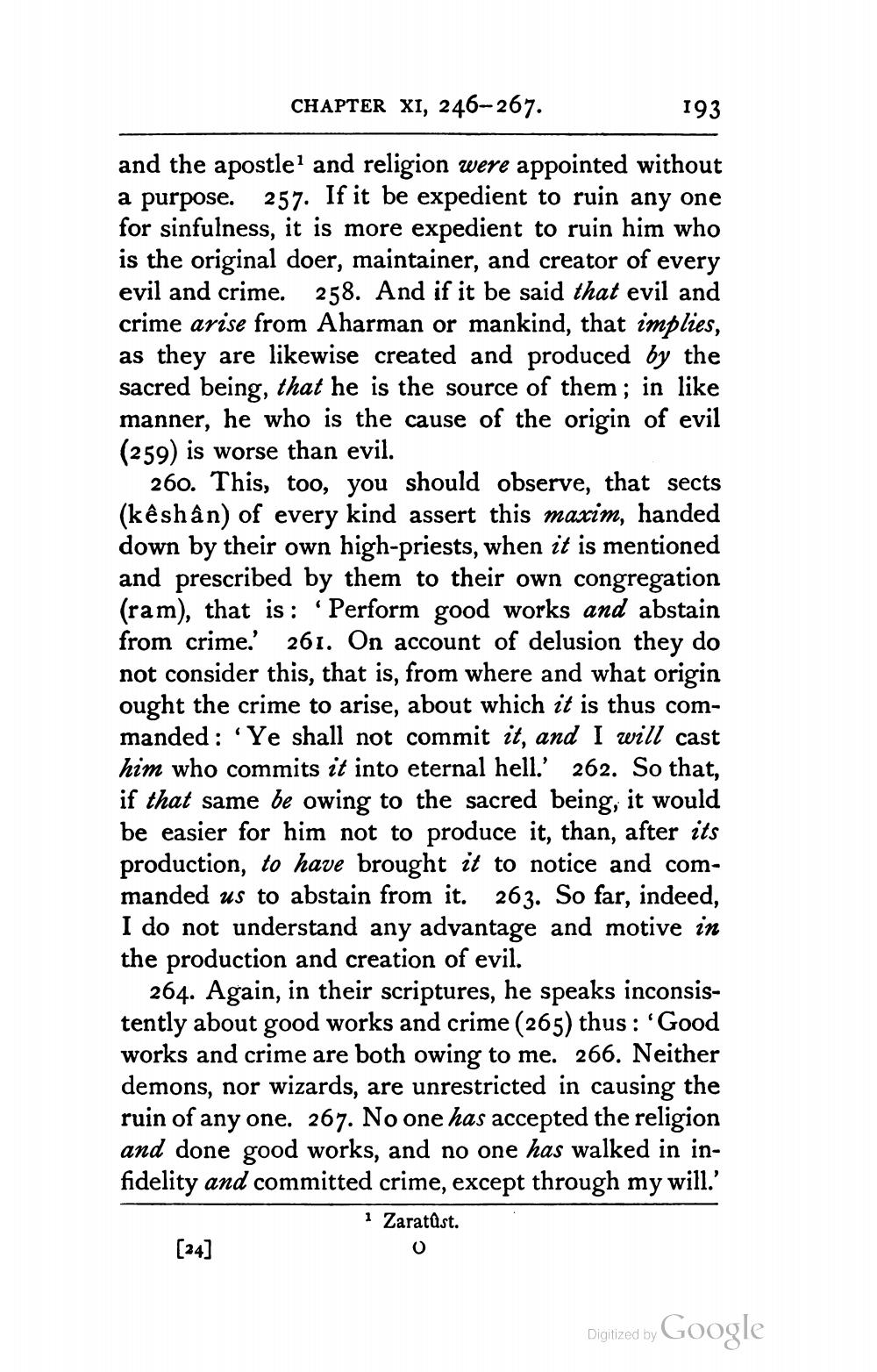________________
CHAPTER XI, 246–267.
193
and the apostle and religion were appointed without a purpose. 257. If it be expedient to ruin any one for sinfulness, it is more expedient to ruin him who is the original doer, maintainer, and creator of every evil and crime. 258. And if it be said that evil and crime arise from Aharman or mankind, that implies, as they are likewise created and produced by the sacred being, that he is the source of them; in like manner, he who is the cause of the origin of evil (259) is worse than evil.
260. This, too, you should observe, that sects (kêshân) of every kind assert this maxim, handed down by their own high-priests, when it is mentioned and prescribed by them to their own congregation (ram), that is: 'Perform good works and abstain from crime.' 261. On account of delusion they do not consider this, that is, from where and what origin ought the crime to arise, about which it is thus commanded : 'Ye shall not commit it, and I will cast him who commits it into eternal hell.' 262. So that, if that same be owing to the sacred being, it would be easier for him not to produce it, than, after its production, to have brought it to notice and commanded us to abstain from it. 263. So far, indeed, I do not understand any advantage and motive in the production and creation of evil.
264. Again, in their scriptures, he speaks inconsistently about good works and crime (265) thus : 'Good works and crime are both owing to me. 266. Neither demons, nor wizards, are unrestricted in causing the ruin of any one. 267. No one has accepted the religion and done good works, and no one has walked in infidelity and committed crime, except through my will.'
1 Zaratust. [24]
Digitized by Google




